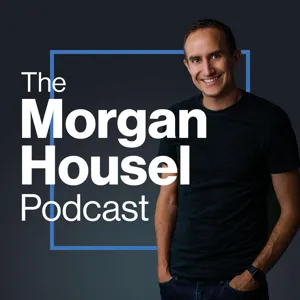Podcast Summary
Reflection and Quiet Time: Making good decisions requires quiet time alone to reflect and think, as demonstrated by John D. Rockefeller's success through mastering quiet reflection and listening more than speaking.
John D. Rockefeller, the most successful businessman of his time, understood that making good decisions required quiet time alone in his thoughts. This was a unique approach during Rockefeller's time when most jobs were manual labor and required little thought or decision-making. Rockefeller's product was not what he physically did but rather what he figured out in his head. He was a master of quiet reflection and listening more than speaking. His favorite poem, "A Wise Old Owl," encapsulated his philosophy - the more you see and hear, the less you speak. Today, with the majority of jobs relying on brainpower and decision-making, Rockefeller's approach is more relevant than ever. We can all learn from his example and make time for quiet reflection to improve our decision-making abilities.
The Shift in Productivity for Knowledge Workers: Many workplaces still expect knowledge workers to labor visibly for 40 hours a week, but true productivity comes from giving them time and resources to think and brainstorm, leading to better outcomes.
The definition of productivity in today's economy has shifted, especially for knowledge workers. While 38% of jobs are decision-making roles that require deep thought, many workplaces still expect these employees to labor visibly for 40 hours a week. However, being productive in these roles often means taking time to think and brainstorm, which can lead to better outcomes. Instead, many knowledge workers are left in a state of being "thought workers without time to think," which is counterproductive and hinders productivity growth. The speaker suggests that workplaces need to adapt and give their knowledge workers the time and resources they need to effectively use their minds, rather than just expecting them to labor visibly.
Relaxation and Reflection: Taking breaks for unstructured thinking, such as walking or daydreaming, can boost creativity by 60% according to a Stanford study, and have led to groundbreaking ideas throughout history
In today's knowledge economy, the most productive work may not always look like traditional work. Many famous thinkers throughout history have reported that their best ideas came to them during seemingly idle moments, such as taking a bath, going for a walk, or daydreaming. Albert Einstein and Mozart are just a few examples of individuals who have acknowledged the importance of taking time for unstructured thinking. A Stanford study even supports this notion, finding that walking can increase creativity by 60%. While it may be difficult to convince a boss of the value of these activities, it's important to remember that some of the most groundbreaking ideas have come from moments of relaxation and reflection. So, take a break from your desk, go for a walk, or take a bath – you never know what might come to mind.
The Value of Unproductive Work: Ideas and thoughts are often generated during non-computer activities, contributing to productivity. However, the work must eventually be produced on a computer and goals met.
The most productive work for a writer, and likely many knowledge workers, doesn't always occur at a computer. Instead, it happens during activities like walking the dog or going for a run. This is when ideas are generated and thoughts are clarified. However, it's important to note that eventually, the work must be produced on a computer and goals and quotas must be met. As the economy continues to shift towards knowledge work and AI, it's crucial to respect that what appears to be lazy or unproductive work may actually be the most valuable. In the realm of investing, it's wise to judge people by their processes and outcomes, rather than just their visible work. This episode was brought to you by The Rundown by Public.com, a short weekly podcast discussing the stock market and economy. Remember, good work may not always look productive on the surface.

